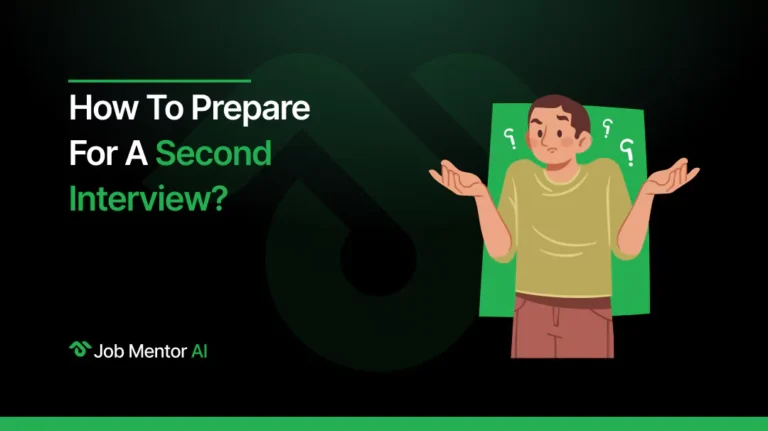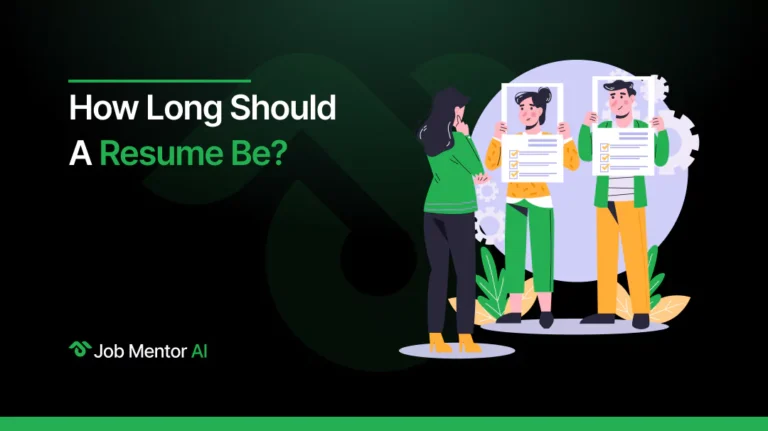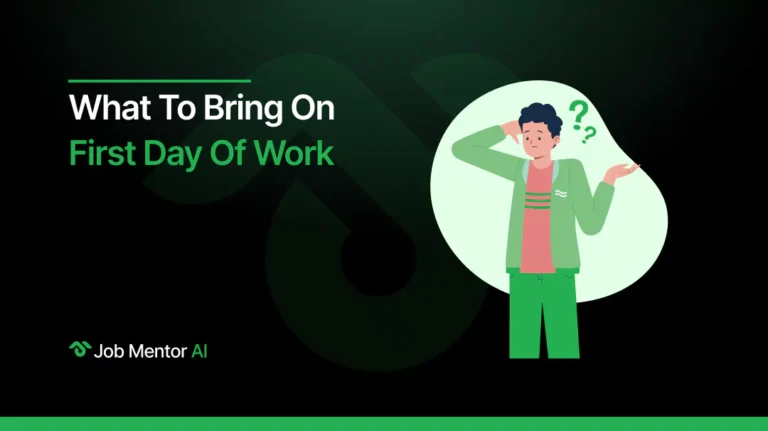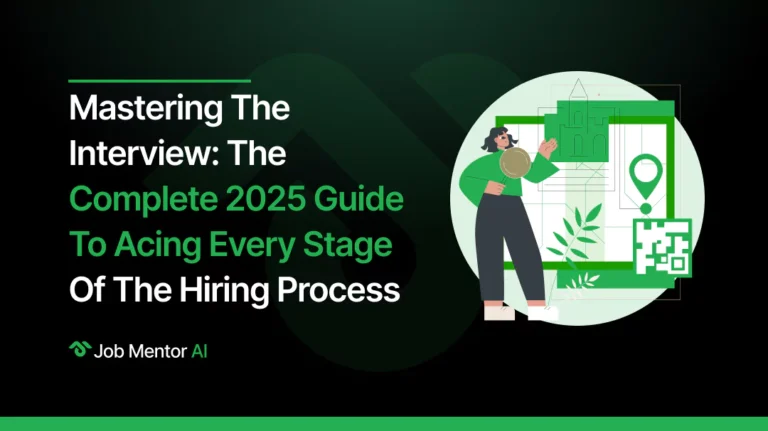What to Bring to an Interview: 20 Essential Items for a Successful Interview
- Published
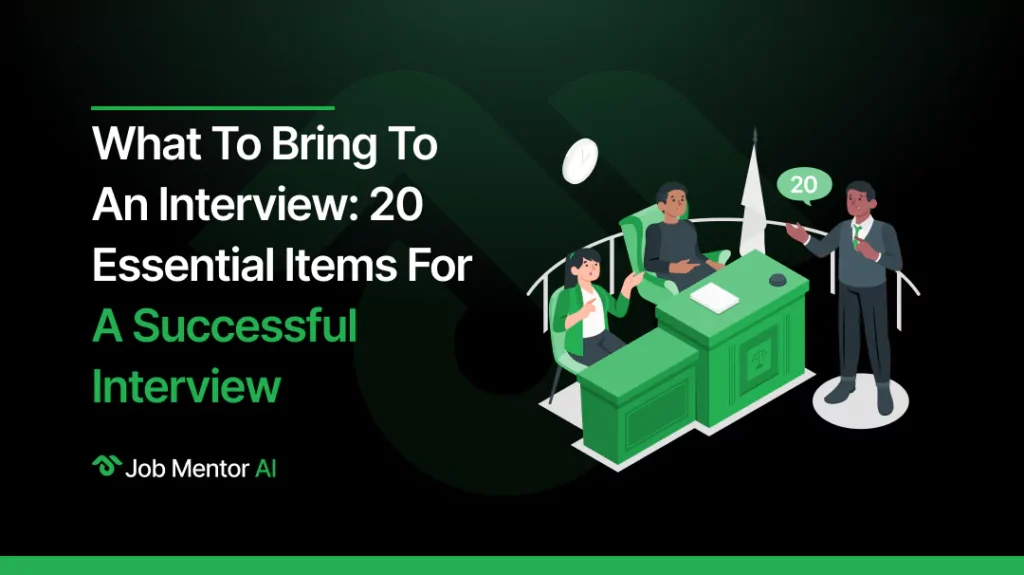
Going to an interview can feel a bit scary sometimes. You want to look confident and professional but at the same time, your mind keeps thinking, “Wait, what should I actually take with me?” Sounds simple, right? But trust me, a lot of people forget some important things.
Bringing the right stuff honestly makes a difference. It helps you stay calm and kinda makes you feel ready for the opportunity. So yeah, even small things can make your whole interview feel smoother and less stressful.
What to Bring to an Interview
When you’re getting ready for a job interview, you probably spend most of your time researching the company, scrolling through their website, and maybe practising some common questions in your head or out loud if no one’s watching. And that’s honestly a good start.
But here’s the thing, it’s not just about what you say. The little things you bring with you can matter more than you think. Having the right stuff in your bag can make you feel more at ease, help you stay organized, and even make you look extra professional, like someone who’s got their act together. So to make sure you don’t miss anything important, here’s a checklist of 20 essential items to consider bringing to your next in-person interview:
No stress, no fuss, just the basics that can actually make the day feel a little smoother.
20 Essential Items to Bring for a Successful Interview
- Printed Copies of Your Resume
- Photo ID
- Interview Confirmation Email or Job Description
- Notebook and Pen
- List of References
- Portfolio or Work Samples
- Professional Folder or Bag
- Tissues and Hand Sanitizer
- Breath Mints (Before You Go In)
- Water Bottle
- Questions to Ask the Interviewer
- Company Research Notes
- Phone (Silenced)
- Map or Directions
- Comfort Item or Confidence Reminder
- Extra Set of Clothes
- Copy of Certifications or Licenses
- Salary Expectation Sheet
- Printed List of Key Achievements
- Printed Cover Letter
1. Printed copies of your Resume
Always carry a few printed copies of your resume, and keep them in a clean folder. This is especially helpful if you’re meeting more than one interviewer or if someone asks for a physical copy.
2. Photo ID
Many big companies require an ID at their reception desk. Bringing a government-issued ID helps them avoid any delays during entry.
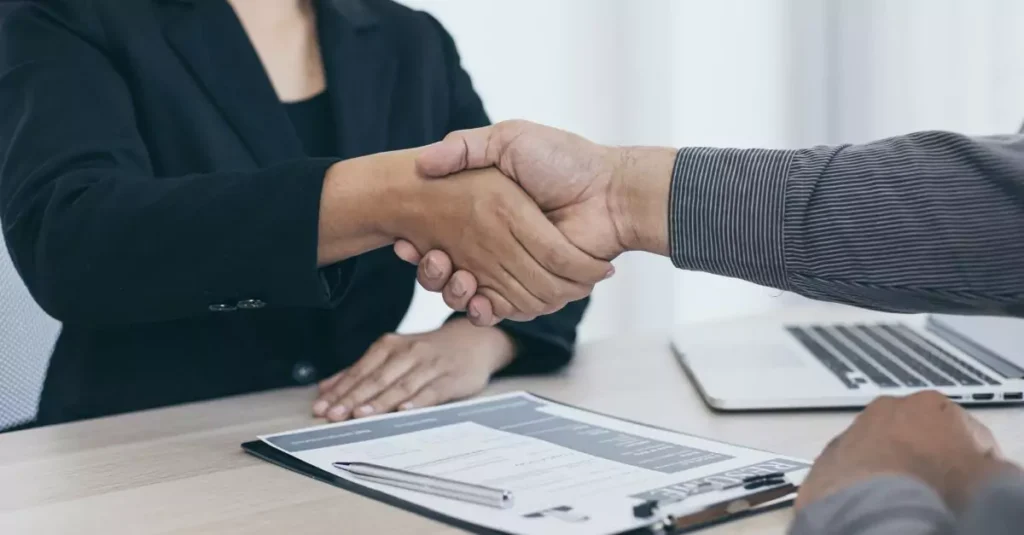
3. Interview Confirmation Email or Job Description
It is a good idea to have a copy of your interview invitation or job description for a quick review while waiting for the Interview. It can recall your memory on key points and expectations.
4. Notebook and Pen
Taking notes during or after the interview helps you remember important details. It shows that you’re attentive and serious about the role.
5. List of References
Even if not requested immediately, having your reference prepared shows you are forward-thinking and ready for the next step in the hiring process.
6. Portfolio or Work Samples
If you are from a field like design, writing, tech or marketing, bring a sample of your work can back up your resume and make your experience
7. Professional Folder or Bag
Use a tidy folder, briefcase, or tote bag to keep your documents and essentials in order. It’s a small detail that adds to the polish, making a great first impression.
8. Tissues and Hand Sanitizer
These items might seem minor, but they’re smart to have on hand. Clean hands and a fresh face help you feel comfortable and confident.
9. Breath Mints (Before You Go In)
Fresh breath in essentials. Just pop one before entering, but avoid chewing gum which shows disrespect and can be distracting as well.
10. Water Bottle
Bring a small water bottle to keep yourself hydrated especially if our nerves or dry air are factors. Just take small sips before the interview begins to boost your confidence.
11. Questions to Ask the Interviewer
Bring a few smart questions to ask hiring managers. Not only does it show genuine interest, but it also creates a more engaging two-way conversation
12. Company Research Notes
Having a few bullet points about the company can be a great last-minute refresher. It reminds you of what stands out about the role and aligns your answer accordingly.
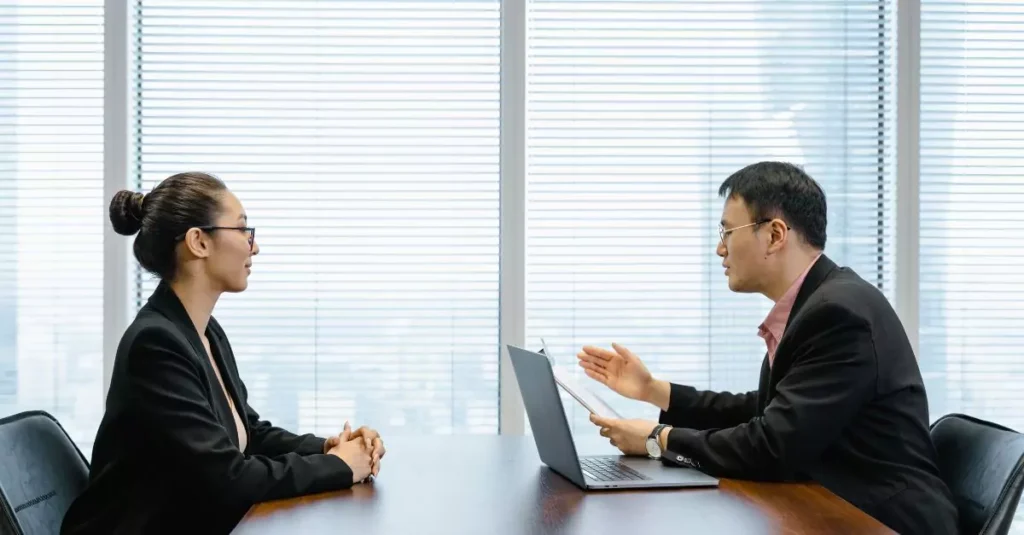
13. Phone (Silenced)
It’s okay to bring your phone to an interview, but just be sure it’s turned off or silenced before you step into the building.
14. Map or Directions
Always have a backup route and printed directions so that it won’t be a problem later on, especially with the location. It’s one less thing to worry about on the day.
15. Comfort Item or Confidence Reminder
Everyone has that one lucky thing with them, whether it’s a lucky coin, a small note or a bracelet that remains of someone supporting. Carrying something meaningful can give them confidence when they need it most.
16. Extra Set of Clothes
Accidents happen coffee spills, wrinkles, you name it. Having an extra shirt or jacket in your bag can save you from feeling awkward if something goes wrong on the way.
17. Copy of Certifications or Licenses
If the job needs certain certificates or licenses (like for healthcare, teaching, or technical jobs), it’s good to bring copies. The interviewer might ask for proof.
18. Salary Expectation Sheet
Sometimes interviews turn to salary talks. If you’ve thought about what you want to earn, jotting it down helps you stay clear and confident and not fumble when asked.
19. Printed List of Key Achievements
This is like a cheat sheet your proudest work wins or results. If nerves hit, you can glance at this and remind yourself of your value before going in.
20. Printed Cover Letter
Even if you sent it by email, having a printed copy of your cover letter shows you’re organized plus you can offer it if someone didn’t see your application before the chat.
Tips for a Successful Interview
Bringing the right items is a big part of it but being mentally prepared is just as important. Here are some helpful suggestions to keep in mind:
- Take time to practice common questions you might be asked. It helps reduce nervousness and makes your answers more natural.
- Your body language plays a vital role in making a great first impression. A firm handshake, warm smile, and confident eye contact will set a positive tone for the conversation.
- Review your own resume so you’re ready to talk about anything on it.
- Dress appropriately and make sure you feel comfortable in what you’re wearing.
- Arrive early, but not too early. 10–15 minutes ahead is just right.
- Use the waiting time to go over your last minute interview tips or take a deep breath.
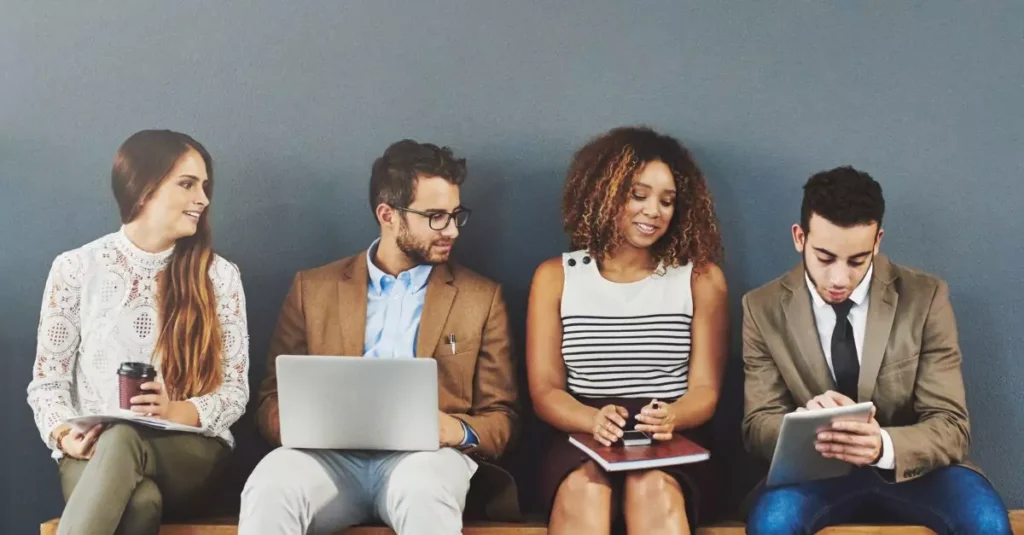
What not to bring to an interview?
Just like knowing what to bring, it’s also important to know what to leave behind. Carrying the wrong items can be distracting or leave a less-than-professional impression. Here are a few things best left at home:
- Chewing gum: It can be distracting during the conversation. Opt for a mint before the interview instead.
- Strong perfume or cologne: Go for a light scent or none at all, as some people may be sensitive to strong fragrances.
- Food or drinks: Apart from a small water bottle, it’s best not to bring snacks or takeaway coffee.
- Excess accessories: Keep your look neat and professional. Loud jewellery or flashy items can take the focus away from your words.
- Too many bags: Stick to one clean, organised bag or folder to carry your essentials.
- Your phone (in use): You can bring it for directions, but be sure it’s on silent or switched off before entering.
Sticking to the essentials helps you stay focused and make a calm, professional impression.
Prepare for your interview with confidence using AI Interview Assistant, which allows you to practise common interview questions in a relaxed, realistic setting. It offers gentle feedback on your answers, tone, and delivery, helping you fine-tune your responses and body language. With this supportive guide, you can feel more at ease and ready to step into any interview with a calm, collected mindset.
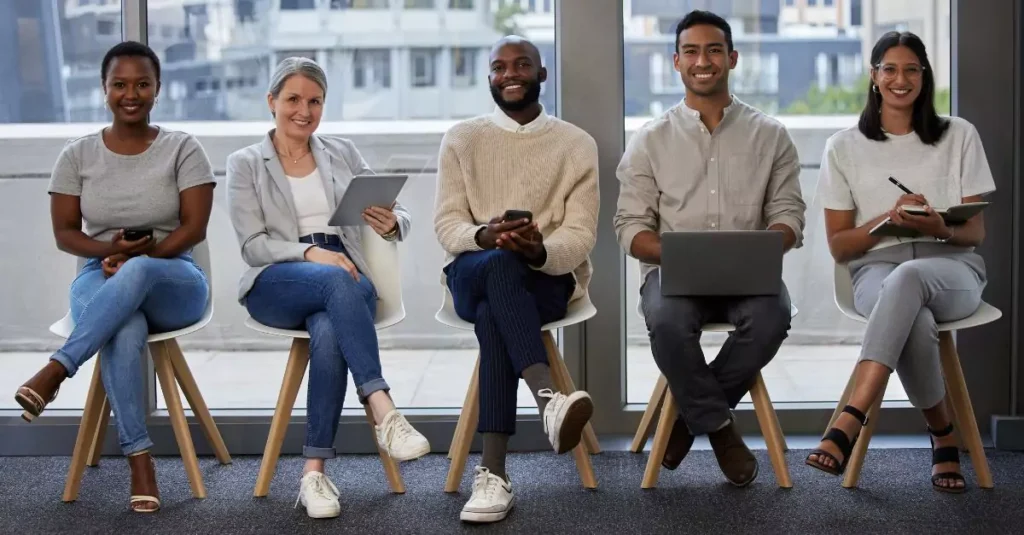
Conclusion
Being fully prepared isn’t just about what you say, it’s also about what you bring. From essentials like your resume and ID to extras like breath mints and a pen, having everything in place can help you feel more relaxed and confident. Preparation reflects professionalism, and your goal is to walk in with calm energy and leave feeling proud of how you presented yourself.
Boost your interview readiness further by trying AI Mock Interview Practice! Get personalized feedback and improve your responses, tone, and delivery for the real thing.
Table of Contents
Frequently Asked Questions
What should I carry for an interview?
Here are some important items you should bring:
- Multiple printed copies of your resume
- A valid photo ID
- A notebook and a pen for taking notes
- A list of references
- Work samples or a portfolio (if relevant)
- A small water bottle
- Questions to ask the interviewer
What are 5 things you should do during an interview?
Here are five simple things that can help you feel confident and leave a good impression:
- Greet your interviewer with a smile and a firm handshake
- Listen carefully and answer clearly
- Show genuine interest in the job and the company
- Sit up straight and maintain good eye contact
- Ask thoughtful questions when given the opportunity
Should I bring multiple copies of my resume?
Yes, definitely. It’s always best to carry a few extra printed copies of your resume. You might be interviewed by more than one person, or they might not have your resume on hand. Having extras ready shows that you’re thoughtful, organised, and fully prepared.
What if I forget something important?
Try not to stress. If you realise you’ve forgotten something small like a pen or a printed resume stay calm and professional. You can politely let the interviewer know and offer to email it again if needed. What matters most is your attitude and how you handle the situation with confidence.
How can I stay calm before going in?
Take a few moments to relax before walking in. Deep breathing can really help steady your nerves. You can also quietly go over your key talking points or look through your notes.

